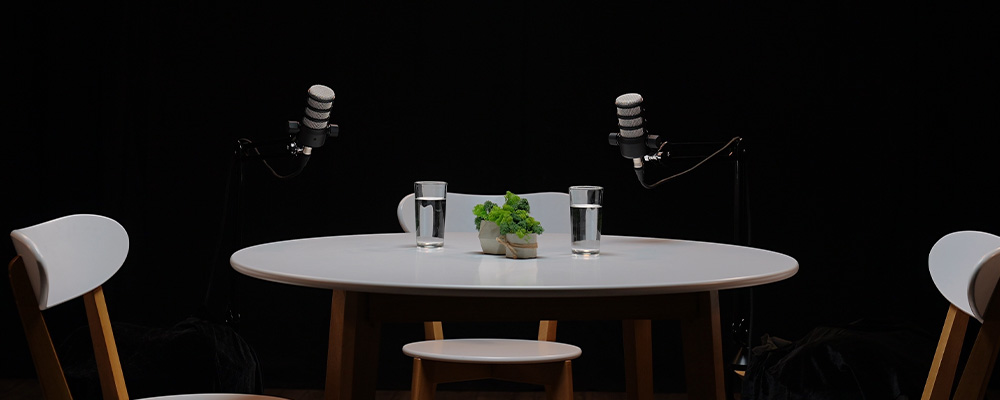Every podcaster starts with a microphone, an idea, and an audience of zero. What separates the best from the rest isn’t just celebrity or budget—it’s the craft of storytelling, connection, and reliability.
In 2026, the podcast industry is more crowded than ever. Yet a handful of hosts continue to rise above the noise by mastering the fundamentals: consistency, authenticity, and quality.
Whether you’re just launching your first episode or leveling up your production workflow, here’s what you can learn from 10 of the most influential podcast hosts today—and how to apply their lessons to your own show.
1. Joe Rogan – Consistency Builds Empires
Love him or not, Joe Rogan’s The Joe Rogan Experience remains the most recognized podcast in the world, with over 2,000 episodes.
What to Learn:
Rogan’s success isn’t about gimmicks—it’s about consistency. He releases multiple long-form episodes per week and treats each one as a standalone event. That reliability keeps listeners returning.
How to Apply It:
Stick to your schedule, no matter your audience size. Regularity builds trust. With Boomcaster’s reliable recording and backup system, even small creators can maintain that same professional consistency without worrying about technical issues derailing their cadence.
2. Alex Cooper – Brand Your Voice with Confidence
Alex Cooper’s Call Her Daddy evolved from a provocative lifestyle show into a major brand partnership powerhouse under Spotify.
What to Learn:
Cooper doubled down on brand and authenticity. She understood her target audience—young women navigating relationships—and built a brand voice that’s unapologetically hers.
How to Apply It:
Know your audience and own your tone. Whether serious, irreverent, or academic, consistency in voice turns casual listeners into loyal fans.
3. Sarah Koenig – Narrative Mastery Wins Loyalty
Serial changed podcasting forever. Sarah Koenig’s meticulous storytelling and serialized format brought investigative journalism to millions of new listeners.
What to Learn:
Structure matters. Great podcasts don’t just “talk”—they build arcs, suspense, and emotional engagement.
How to Apply It:
Outline your episodes with purpose. Even conversational shows benefit from clear flow and pacing. Use tools like Boomcaster’s local recording and isolated tracks to keep your storytelling tight and your post-production edits seamless.
4. Conan O’Brien – Turn Interviews into Friendship
With Conan O’Brien Needs a Friend, the former late-night host took his comedic interviewing skillset into the intimate world of podcasting.
What to Learn:
The best interviews feel human. Conan’s secret weapon is vulnerability and humor—he makes listeners feel like part of the conversation.
How to Apply It:
Research your guests, but don’t over-script. Create space for spontaneity. With Boomcaster’s guest-friendly recording links, your guests can join easily, keeping the focus on connection—not tech setup.
5. Brené Brown – Lead with Purpose and Vulnerability
Brené Brown’s Unlocking Us and Dare to Lead bring research-driven storytelling to personal development.
What to Learn:
Brown bridges expertise and emotion—she translates complex psychology into relatable human stories.
How to Apply It:
Don’t shy away from showing your humanity. Let your audience hear your thought process and even your mistakes. Authenticity builds emotional resonance.
6. Emma Chamberlain – Evolve with Your Audience
Emma Chamberlain, known for Anything Goes, turned YouTube fame into podcast success through transparency and adaptability.
What to Learn:
Your audience grows and changes—so should your content. Chamberlain evolves her topics and tone as her listeners mature.
How to Apply It:
Track listener feedback, social engagement, and reviews to stay in sync with your audience’s phase of life and interests.
7. Dax Shepard – Make Vulnerability a Strength
With Armchair Expert, Dax Shepard redefined celebrity interviews by centering honest, often raw conversations about addiction, relationships, and insecurity.
What to Learn:
True connection beats perfection. Shepard’s imperfections are part of his brand—and listeners relate to that honesty.
How to Apply It:
Focus on substance over polish. Capture clean, reliable audio with Boomcaster’s local recording, but let the emotional texture shine through.
8. Marc Maron – The Power of Longevity
WTF with Marc Maron has run since 2009, with over 1,300 episodes and a catalog spanning comedians to world leaders.
What to Learn:
Persistence compounds influence. Maron built credibility through endurance and deep, empathetic interviews.
How to Apply It:
Treat podcasting as a long game. Keep your production system simple and repeatable so consistency is sustainable.
9. Jay Shetty – From Monks to Microphones
Jay Shetty’s On Purpose demonstrates how storytelling rooted in empathy can transcend genres.
What to Learn:
Transform wisdom into action. Shetty’s format—mixing insights, guests, and guided reflection—makes complex ideas accessible.
How to Apply It:
Develop a consistent episode framework. Open with context, deliver value, and close with takeaways. Reliable structure keeps even casual listeners engaged.
10. Lex Fridman – Curiosity Is the Content
Lex Fridman’s self-titled show features in-depth discussions on science, philosophy, and AI. His hallmark is genuine curiosity and respect for complexity.
What to Learn:
Curiosity fuels longevity. Fridman doesn’t chase trends—he explores what fascinates him, and his sincerity keeps audiences returning.
How to Apply It:
Podcasting rewards genuine interest more than expertise. Focus on asking better questions, not giving longer answers.
The Common Thread
Across every format—comedy, journalism, education, or lifestyle—these hosts share three key traits:
- Consistency. They release episodes predictably.
- Authenticity. Their voices sound real, not rehearsed.
- Quality. Audio clarity and production value enhance credibility.
You can’t always control audience size, but you can control experience. With Boomcaster’s studio-quality local recording and isolated tracks, you’ll never lose a great moment to bad internet or overlapping dialogue.
Final Thoughts
The podcast hosts who shape the industry aren’t just good talkers—they’re good listeners, planners, and connectors.
Study their work not to imitate them, but to find your own rhythm. Create consistent, authentic content, invest in reliable recording, and stay curious.Because in the end, that’s what makes a podcast worth listening to—and remembering.


